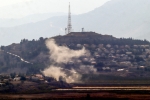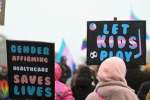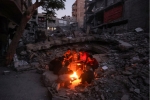About Amnesty
What is Amnesty International?
To learn more about the organization, click here. You will find additional information on our international website.
What does Amnesty International do?
We turn knowledge of human rights violations into global awareness and action.
We uncover the truth about human rights abuses, and mobilize individuals to take action so that human rights abuses are stopped, individuals and communities are protected, and perpetrators of human rights violations are brought to justice.
Check out our latest Annual Report to see an overview of our work around the globe in the most recent year.
Is Amnesty International effective?
Yes! We are based on the belief that individuals working together in international solidarity can bring about real change. We know this works because the people we try to help tell us that our pressure has had an effect on their own lives and because at key times governments are persuaded to change their laws and practices.
Since 1961, we have made appeals on behalf of thousands of individual victims of human rights abuses and have established a concrete record of achievement.
- Ten of thousands of prisoners of conscience have been released from unjust detention.
- We built up public support to get the United Nations Convention Against Torture adopted, and to get individual governments to ratify the Convention and make torture illegal in their countries.
- A decades-long campaign has led to the death penalty being abolished in law or practice in two-thirds of the world’s countries – a sea change from the 1970s, when only 16 countries had abolished capital punishment.
- In 2010, a research mission to Eastern Chad brought the dire reality of refugees from the Darfur conflict to the world’s attention. We urged the UN to sustain its mission to protect and provide for the vulnerable people who have been displaced. They listened and extended the mandate.
- We generated the global support necessary for the establishment of the International Criminal Court, so that those responsible for Genocide, War Crimes and Crimes Against Humanity will face justice. In 2012, the first sentence was handed down by the International Criminal Court (ICC). Lubanga Dyilo was found guilty of recruiting child soldiers and using child soldiers in armed conflict.
Visit our Good News page to see other examples of how effective you can be when your voice is joined with millions of others.
How is Amnesty funded?
Our funding depends on the contributions of our worldwide membership and fundraising activities. We are committed to the principles of international human rights; we do not support any one ideological, political, religious, or other model of government or society. In order to maintain a neutral and impartial approach to our work, we do not accept any government funding for our research and campaigning work.
The generosity and commitment of our supporters allows us to:
- Maintain our independence
- Keep up the pressure on governments, companies and other organisations
- Respond quickly to human rights crises when they occur
You can support us by donating online here.
How does Amnesty International safeguard its independence?
Our independence is a vital part of our effectiveness. We do not accept any money from governments or political parties, so we are free to criticise governments and others for abusing people’s rights, or for failing to protect them. Because we are independent of any government, political ideology, economic interest or religion, we can take action to defend human rights wherever they are violated.
We are a democratic organisation, answerable only to our members and supporters, people who come from many different backgrounds but who share a common commitment to human rights.
How does Amnesty International gather and verify its information?
Our reports are recognized as among the most accurate, unbiased and credible human rights reports in the world.
Our investigative work is carried out by teams of professional human rights researchers, based at our head office, the International Secretariat in London (UK), and at regional offices around the world.
Researchers receive information from many sources: prisoners and their families, associates of the “disappeared,” community workers, lawyers, journalists, refugees, and humanitarian and other human rights organizations. They constantly scan newspapers, websites and other media outlets, and seek out information through a global network of contacts.
Our representatives are often the only opportunity people have to tell the world the truth about their situation – their only lifeline to people who can help them defend their rights.
Quickly and carefully, our researchers cross-check and assess information until they are sure of the facts. Only then do we issue a public statement or report. Only then do we take action.
How does Amnesty International decide which cases to take up?
We receive more requests for assistance than the organisation can address, literally tens of thousands per year. There are several over-lapping factors that affect whether we take up a person’s case and which actions (public or non-public) we take once the case has been taken up.
- Gravity of the violation
- Quality and ongoing reliability of information about the case
- Alignment with our broader work
- Whether it represents a pattern of violations in the country
- The likelihood of having an impact
- Our capacity to follow the case and to plan/develop campaigning
- Whether other organisations or agencies are already working on the case
- The wishes of the individual
- Benefit to harm ratio (i.e. we will not make the situation worse by acting).
Joining Amnesty
How can I join Amnesty International?
Donate
You can join Amnesty International by making a monthly or single gift of any amount. You can join online here, by phone at 1-800-AMNESTY (1-800-266-3789) or by mailing a donation to Amnesty International, 312 Laurier Ave E, Ottawa ON K1N 1H9.
Become a Member
Find more information about membership here.
Volunteer
Whether you have a few minutes or a few hours a week, you can be part of our grassroots human rights work. A few ways you can get involved:
Amnesty groups and Action Circles: There are approximately 90 local and regional Groups and Action Circles in communities across Canada. Groups work on our current campaigns, participate in letter-writing appeals and participate in special projects. You can find groups in your area here.
The Urgent Action Network: When the immediate safety of someone is at risk, our method of choice is the Urgent Action Network (UAN). UAN participants send urgent faxes, letters and emails to authorities around the world for individuals who are at risk of imminent human-rights violations. Send us an email to join. In your email, please include your name, your mailing address, and how often you would like us to send you UAs (a common choice is one per month). Your UAs will be emailed to you unless you specify that you wish to receive them by regular mail.
Sign up for e-updates: Sign up for regular campaign and action updates!
You can find more options for getting involved by clicking here.
I’m an Amnesty International supporter. How can I update my details?
It is quick and easy to update your contact information on our secure form.
If you need to change your credit card or bank details, you can call us at 1-800-AMNESTY (1-800-266-3789) or send your new info by mail or fax to:
Amnesty International
312 Laurier Avenue East
Ottawa, ON K1N 1H9
Fax: (613) 746-2411
I’m missing a tax receipt. How do I get a new one?
Receipts for monthly donors are mailed annually in late January. If you have lost your receipt or you never received the original, please email us at members@amnesty.ca or call 1-800-AMNESTY (1-800-266-3789) to confirm your address and receive a new receipt by email or mail.
All single gifts of $10 or more are also receipted. If you made a gift online and did not receive an automatic e-receipt, your receipt will arrive by mail within two weeks. Receipts for donations made by phone or mail will be sent by mail, unless otherwise requested.
How can I stay informed about Amnesty’s work?
Sign up to receive email updates. You’ll be kept informed of the most interesting and pressing issues in human rights, and offered opportunities to take part in our life-changing work.
Become a supporter. Become a monthly or single gift donor and receive publications by mail (2x/year) and email (monthly). Supporters who wish to get more regular updates can subscribe to Activist magazine (3x/year) by emailing members@amnesty.ca.
Join Amnesty’s online community! Follow our blog, follow us on Facebook, or subscribe to our Twitter feeds.
Read WIRE, our global magazine for people who are passionate about human rights. Read about our campaigns and fresh research, meet the human rights defenders we work with and take action.
How do I find out more about internship and job opportunities at Amnesty International?
xxx
We will post jobs on our website when they are available here: Work with Us
We offer 2 paid youth internship positions every year at the National Office in Ottawa. The posting will go up on the Work with Us page.
Any other internship positions, volunteer positions, and other opportunities will be posted on this page, too. We cannot respond to individual requests that aren’t related to those posted on our website, and we do not keep unsolicited CVs on file.
For Students/Researchers
Can you help me with my project / research?
You will find a lot of information in this FAQ, on the Who We Are section of our website and the Who We Are section of our international website.
How do I find information on specific countries or specific human rights issues?
We don’t have all Amnesty International documentation on our Canadian website. For all electronic documents dating back to 1997 (and in some cases, earlier), please visit the international electronic library.
You can email us if you cannot find what you are looking for and we will see how we are able to help.
Are there copyright issues with Amnesty materials?
Our media items, reports and other documents on our website can be shared and distributed as long as full credit and source information is given. This includes larger distribution in educational settings.
Images on our website cannot be used or distributed without permission from us. Not all images are copyright Amnesty International, and some images have restrictions in order to protect individuals and their families.
For detailed information, please see our copyright page.
More Information
What are Human Rights?
Human Rights are the basic freedoms and protections that belong to everyone, everywhere. They are the rights that allow each person to be treated equally, and to live in freedom and with dignity.
Human rights are:
- Universal – They belong to everyone, regardless of race, religion, country of origin or residence, gender or sexuality, age, ethnicity, or abilities.
- Indivisible, interrelated and interdependent – Everyone has all the rights defined in international human rights law. No one right is more or less important than any other. If one right is violated, it can have a negative effect on the enjoyment of other rights.
- Inalienable – No person, corporation, government or other organization can take away anyone’s human rights.
The core rights are set out in the Universal Declaration of Human Rights, adopted by the United Nations in 1948.
There are many international treaties and conventions that define and expand upon these human rights principles. To learn more, go to the Office of the High Commission on Human Rights (OHCHR).
Visit our international website to learn about different human rights issues, read our research and media documents on these, and learn more about how we are working for change.
What right do we have to interfere in the internal affairs of countries?
After World War II, the international community accepted that national sovereignty cannot be used as an excuse for human rights violations, or as a cover to protect people who are guilty of human rights abuses. Under international agreements and treaties, developed and approved by the world’s governments, individual governments are accountable to the world for how they treat their people. The cornerstone of the modern international human rights system is the duty of all governments to advance human rights and protect them wherever they are under attack.
Don’t human rights have to be restricted to ensure security?
We recognize that governments have an obligation to protect the security of their citizens, just as they have an obligation to protect people’s human rights. However, human rights should not be compromised in order to protect our security, and they do not have to be. In fact, lasting security can only be based on respect for human rights. Governments should be responding to security challenges by upholding the values, including human rights values, they claim to defend.
In some countries around the world, governments are using the current ‘war on terror’ as an excuse to ignore human rights, or to justify the repression of their political opponents. Many other countries have introduced laws that erode the human rights of their people. We campaign to promote security with human rights.
Does Amnesty International work on human rights issues in Canada?
We have several campaigns and activities that focus on Canada. These include:
Indigenous peoples: Our work in this area includes pressing the Canadian government to sign the UN Declaration on the Rights of Indigenous Peoples (which finally happened in late 2010), working with Indigenous communities who are fighting to enforce their right to free, prior and informed consent where there is major logging, gas and oil exploration, and other commercial ventures on their lands, and working with Sisters in Spirit and other organizations on our Stolen Sisters campaign which demands that Canadian government and security forces address the high incidence of missing and murdered Aboriginal women.
Corporate Accountability: We press for legislation and enforcement mechanisms that will hold Canadian extraction companies operating overseas to uphold human rights standards. We also directly put pressure on corporations with activities in other countries to respect the human rights of all people affected by their mining operations.
Security: We hold the Canadian government accountable for human rights violations such as complicity in torture and advocating for and protecting the rights of Canadians detained abroad.
Refugee Protection: We take action to prevent or change harmful legislation that denies refugees in Canada their rights. We also work to stop deportations of refugees who face a high risk of human rights violations if they are returned to their countries of origin.
Do you help people who want to immigrate or get refugee status in Canada because of human rights violations in their home countries?
We do not help people outside Canada who want to find protection in Canada. Information about the immigration and refugee process in Canada can be found on the Citizenship and Immigration Canada website.
Do you help people in Canada who are making claims for refugee protection?
We have a limited capacity to help refugees who need information about human rights in their country of origin and the risks they may face if they are required to return to their home country. In most cases we need to work directly with the lawyer who is representing the refugee. For more information you can contact: refugees@amnesty.ca.
How can I report a human rights violation to Amnesty International?
You could either put down your information in an email or send a letter directly to the International Secretariat in the UK. If it does not jeopardize your safety, it is helpful to include details such as name, age, address etc. and to specify if you are willing to be contacted.
Due to the volume of such complaints and reports, the International Secretariat is unable to reply to every message or investigate every case, but you can be sure that your email or letter will be forwarded to the relevant research team. The staff in Canada will not have access to the information you submit, and are unable to follow up on your behalf.
Please also note that we do monitor human rights situations around the world through different methods, and we are aware of cases that are already being reported in the media and in online and offline forums.
If your concern relates to something happening in Canada, please take note of the following guidelines for what Amnesty International might be able to assist with.
- We are unable to assist with individual complaints relating to prison conditions or police conduct in Canada. If you have concerns or questions about the penal system or security forces in Canada, you can talk to someone at the relevant oversight body (see below).
- As a human rights organization, we only focus on civil matters relating to international human rights law. We do not have capacity to assist with matters of family, criminal, employment or another area of law.
- We do not provide legal advice, representation or referrals of any kind.
- We can only take reports from individuals who are experiencing human rights violations themselves, or who are relatives of the person experiencing the violations. Please give us a brief description of the key concerns. We will follow up with you if we require more information. Our capacity is limited and we are not able to respond to all messages, and we are not able to investigate every situation brought to our attention.
Useful resources for pursuing human rights concerns in Canada
The Canadian Human Rights Commission administers the Canadian Human Rights Act and is responsible for ensuring compliance with the Employment Equity Act. Both laws ensure that the principles of equal opportunity and non-discrimination are followed in all areas of federal jurisdiction.
There is also a human rights agency in each province and territory that oversees non-federal human rights legislation and complaints. Find your Provincial or Territorial Human Rights Agency.
All police and security forces in Canada are subject to oversight processes. You can find the one for your province and the RCMP at the Office of Independent Police Review Director.
In most cases, you can contact a lawyer who specializes in the area of your concern for advice and options. Each Province and Territory has a Law Society which offers a lawyer referral service so you can find a lawyer who has the right expertise. Find your relevant Law Society.
Canadians detained abroad
In exceptional circumstances, Amnesty International intervenes in a small number of cases of Canadian citizens detained abroad facing grave human rights violations (eg. torture, death penalty). These are evaluated on a case by case basis, with close relatives and legal counsel, about the appropriate role (if any) the organization may undertake. Please provide a brief overview of the situation as well as relevant contact details for follow-up. Note: Anyone with a relative detained abroad should contact Consular Services at the Department of Foreign Affairs for assistance before contacting Amnesty International. We cannot act a go-between between lawyers/relatives and the Dept of Foreign Affairs.












